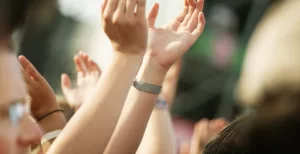Embracing Reconciliation: Our Approved Action Plan
At the beginning of 2020, our leadership team held several meetings to discuss different topics and issues surrounding First Nations peoples.
We were notified that a recent government program that supported First Nations peoples to access the NDIS had had their funding reduced and, as a result, had lost a significant number of staff for the program. Our leadership team agreed that our organisation had a social responsibility and needed to play its part in reconciliation. We acknowledged that our organisation was growing quickly and that we wanted to ensure that our organisation was an Equal Opportunity Employer and recruited First Nations peoples as a part of our employment strategy.
From Medical to Social Model: Empowering Reconciliation
We were also aware of issues occurring both nationally and globally. Using the momentum of the Black Lives Matter movement to analyse the landscape of contemporary Australian society for First Nations peoples, we realised that our mission and vision in the disability sector can be translated to work in the journey towards reconciliation. Disability itself has previously been defined by the medical model, which says people are disabled by their impairments or differences and look at what is ‘wrong’ with the person, not what the person needs. The medical model of disability creates low expectations and leads to people losing independence, choice, and control in their lives. In contrast, the social model of disability is a more progressive way of looking at disability, where a person’s activities are limited not by their impairment or condition but by their environment. In this model, barriers are consequences of the way society is organised, derogatory attitudes, and social exclusion.
Empowering Reconciliation: Our Commitment and Vision
We chose to develop our RAP and begin our journey towards reconciliation because of the parallels that are apparent here and the systemic barriers that have contributed to social stigma and a world built for, and subsequently privileging, specific types of people over others. The change from the medical to social model moves from a lens of deficit to a lens of strength and empowerment. This resonates with the experiences of First Nations peoples as the legacy of colonisation and the continuation of colonial violence presents itself through various injustices and inequities. However, imperative to the reconciliation journey is a progression to emphasise strength and resilience rather than need and deficiency to build cultural strength and reclaim autonomy. This RAP allows us to put our vision of a more inclusive world that values all ways of being into action and to hold ourselves accountable to our core values of consistency, development, diversity, trust, understanding, and respect.
The development and implementation of this RAP will be championed by our Disability and Inclusion Officer with the objective of building Empowered Community Services’ corporate social responsibility. They have created an Internal RAP Working Group that will be responsible for implementing this Reflect RAP.
For the development of this RAP, we have consulted with local members of the Aboriginal community, including Tyrone Gordon, a proud Wiradjuri man as well as an employee of ECS and a member of the internal RAP Group, to ensure that this RAP is authentic, that the actions taken are not tokenistic and that the outcomes are true to Empowered Community Services core values.
Preparing for Reflect RAP: Our Proactive Initiatives
Our organisation has had a proactive approach in the lead-up to the launch of our Reflect RAP and we have been able to participate in a number of important initiatives;
- Our Internal RAP Working Group (RWG) held regular meetings throughout 2020 & 2021.
- We liaised with external services to provide cultural awareness training to increase the organisation’s understanding of First Nations cultures.
- We met with members of the First Nations communities to discuss the purpose of our RAP and explore ways in which we could collaborate in the future.
- Our RWG planned and organised our first event – NAIDOC Week 2020, held at Blackbutt Reserve, which included a Smoking Ceremony, Yulunga Traditional Indigenous Games, and Traditional Dancing.
- We met with Barkindji Malyangapa Artist Jasmine Craciun to discuss the vision for our RAP and how our organisation could contribute to reconciliation. Jasmine expressed her interest in working directly with participants to share her knowledge of traditional cultures through the practice of art in our group space.
- We collaborated with Jasmine on our RAP Artwork and developing First Nations-specific brochures.
- We were able to increase the number of First Nations people who were employed at our organisation. First Nations peoples now make up for 2.5% of our total staff, with an intent to increase this to 10% in the next 12 months.
- We held National Reconciliation Week celebrations at Lake Macquarie, which served as an opportunity for our organisation to learn more about First Nations cultures through storytelling from Elders and Traditional Dancing.
Since embarking on our Reconciliation Journey, we have developed a strong appreciation for First Nations cultures. Feedback from stakeholders and members of the community has been positive, and we are proud that we have been able to achieve some of the milestones that we had initially set out to achieve. We will continue to learn about First Nations cultures and play our part in reconciliation in the years to come.

